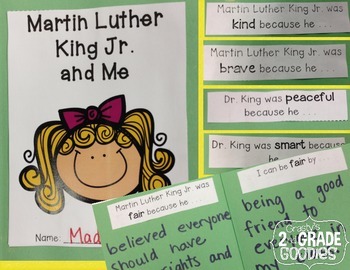Gallery
Photos from events, contest for the best costume, videos from master classes.
 |  |
 |  |
 |  |
 |  |
 |  |
 |  |
In this post, we’ll analyze the leadership traits and qualities of Martin Luther King Jr. In fact, Martin Luther King remains well known due to his leadership role during the civil rights movement. Let’s dive right in and explore his leadership traits. Learn how Martin Luther King Jr. used his commitment, communication, determination, and other traits to lead the civil rights movement. See examples of his speeches, actions, and alliances that inspired millions of people. Learn how Dr. Martin Luther King Jr. possessed intelligence, self-confidence, and determination as a leader of the African American civil rights movement. See how his speeches, actions, and legacy influenced his followers and the world. In this article, we will explore some of the key character traits that Martin Luther King Jr. exhibited throughout his life. 1. Courageous: One of the most prominent character traits of Martin Luther King Jr. was his unwavering courage. Dr. Martin Luther King Jr. demonstrated numerous leadership qualities during his fight for equal rights and over the course of history. He showed great courage over his lifetime by Under the leadership of Martin Luther King, Jr., the SCLC promoted nonviolent direct action as a means of challenging racial segregation and discrimination and built a diverse coalition of supporters that transcended racial, religious, and political boundaries. Dr. King epitomized four distinct characteristics that gave him the gift of bridging the racial divide like no leader before him, a gift that ultimately brought greater trust, unity, and engagement to his nation. Martin Luther King Jr. was one of the most influentual leaders in America History. His achievements and guidance left a mark on our country. What stands out the most are the traits, which he displayed that made him a key figure during his time, and one that is still respected and valued today. Dr. Martin Luther King Jr.’s transformational leadership exemplifies how a leader can inspire and motivate followers to achieve extraordinary outcomes. One of the premier quintessential leadership traits that Dr. Martin Luther King, Jr. possessed was the ability to see the big picture – vision – and communicate that vision. To learn in-depth and to gain application insight into how Dr. King and three other leaders who shared this rare quintessential leadership trait, you can purchase During the less than 13 years of Dr. Martin Luther King, Jr.’s leadership of the modern American Civil Rights Movement, from December 1955 until April 4, 1968, African Americans achieved more genuine progress toward racial equality in America than the previous 350 years had produced. Martin Luther King, Jr. (born January 15, 1929, Atlanta, Georgia, U.S.—died April 4, 1968, Memphis, Tennessee) was a Baptist minister and social activist who led The legacy of Dr. Martin Luther King Jr. encompasses influential decisions, monumental actions and steadfast progressions of humanitarian rights that reach far beyond the civil rights movement. A leader of all people, Dr. King never chose fear, but always chose courage and determination when fighting for civil rights in the face of oppression Martin Luther King Jr. was born on January 15, 1929, in Atlanta, Georgia, the second child of Martin Luther King Sr., a pastor, and Alberta Williams King, a former schoolteacher. Martin Luther King Sr. and Alberta Williams King, seen here in 1968, were parents to Martin Luther King Jr. A middle child, Martin Jr. had an older sister, Willie, and a younger brother, Alfred. Martin Luther King Jr. had great leadership qualities that helped peacefully move for Civil Rights. On November 3, 1983, the bill was signed to make the thir Martin Luther King, Jr. - Civil Rights, Nonviolence, Equality: In the years after his death, King remained the most widely known African American leader of his era. His stature as a major historical figure was confirmed by the successful campaign to establish a national holiday in his honor in the United States and by the building of a King memorial on the Mall in Washington, D.C., near the Martin Luther King, Jr., made history, but he was also transformed by his deep family roots in the African-American Baptist church, his formative experiences in his hometown of Atlanta, his theological studies, his varied models of religious and political leadership, and his extensive network of contacts in the peace and social justice movements of his time. through the Rev. Dr. Martin Luther King Jr. (1929-1968), persons have the traits of selfhood, self-knowledge, and self-direction precisely because in the Boston Tradition, persons are identified with the relational processes of consciousness.12 Next, according to Bowne in his List of major achievements by Martin Luther King, Jr. Inspired by the belief that peaceful protest could eliminate social injustice, he led the American civil rights movement of the mid-1950s and ’60s. King organized mass protests against racial discrimination and championed nonviolent resistance to oppression.
Articles and news, personal stories, interviews with experts.
Photos from events, contest for the best costume, videos from master classes.
 |  |
 |  |
 |  |
 |  |
 |  |
 |  |